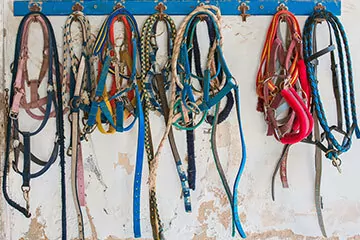 If lawmakers pass the bill proposed by Assemblywoman Daniele Monroe-Moreno, D-North Las Vegas, private prisons will cease to operate in Nevada.
If lawmakers pass the bill proposed by Assemblywoman Daniele Monroe-Moreno, D-North Las Vegas, private prisons will cease to operate in Nevada.
Although the state does not use private prisons, they contract with other states who use private prisons to house inmates. Under the proposed bill, inmates of Federal facilities would see no changes.
As legislation shifts its focus toward battling drug cartels, violence and immigration, private prisons are slowly eroding. Documented problems with privately owned lockups include:
Corruption within. “Pay to detain” and other financially motivated mishaps are increasing in popularity as Immigration and Customs Enforcement (ICE) continue their immigration roundup. With an estimated revenue stream of $5 billion nationally, private prisons lobby in Washington for increased access to inmates. Add judicial scandals like the 2008 “cash for kids” scandal that put two Pennsylvania judges behind bars for accepting bribes in exchange for extended sentences of juveniles, and you quickly learn why states are pulling contracts away from companies that specialize in privatized incarceration.
Cutting costs where it hurts. Inmates are receiving little to no medical care, including much needed mental health services. Rehabilitation programs that work are being cut in lieu of corporate profiteering. Educational and vocational rehab programs either lack current curriculum, or fail to exist. Sanitation costs are being trimmed, leaving some inmates without clean clothing or sanitized living areas.
Nonexistent transparency. Government prisons operate with far greater accountability and public reporting than private prisons, many which keep their corporate names off signage. Without transparency, state and federal governments are finding it difficult to gauge whether private prisons are cost-efficient, the underlying reason why private prisons were contracted to begin with.
This bill was previously introduced by Monroe-Moreno during the 2017 legislative session, but Governor Brian Sandoval swiftly vetoed it. Citing his concern over local and statewide overcrowding, the bill was tabled until 2019 when the proactive Assemblywoman reintroduced it with a provision that adds a three year waiting period after passage.
Republican Assemblyman Chris Edwards is all for private prisons, claiming some offer better amenities than government lockups. He believes that if contracts are more accurately structured, the best interests of the prisoner will be upheld as will transparency.
But with documented proof surfacing in other states that privatization of prisons erodes the health of inmates and does little to curb recidivism, Nevada may find using private prisons would prove more harmful than helpful.
The proposed bill has yet to make it onto the floor, but if you are interested in giving your input about private prisons, or have experienced unwarranted harassment, mistreatment or malnutrition while locked up, tell your representative. The more noise you make, the great chance Nevadans have of keeping corporate interest out of prisons.
Less than 10% of all inmates across the United States are housed in private lockups, although 75% of immigrants detained by ICE are held in private camps and penal facilities. Roughly 200 Nevada inmates were sent to an Arizona facility operated privately in 2017.
If your loved one has reported their civil rights are being violated, or are experiencing mistreatment as an inmate of a private prison, view our case results and contact our firm immediately.